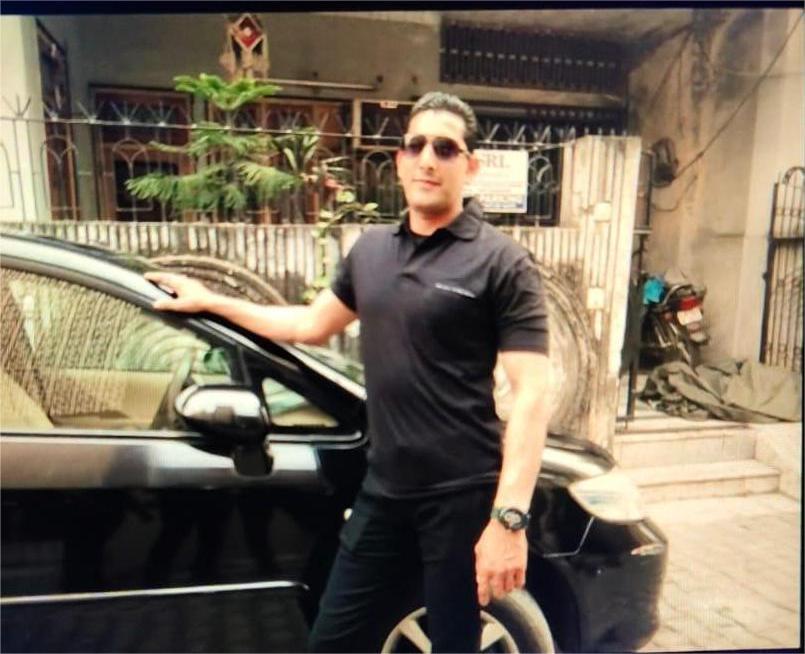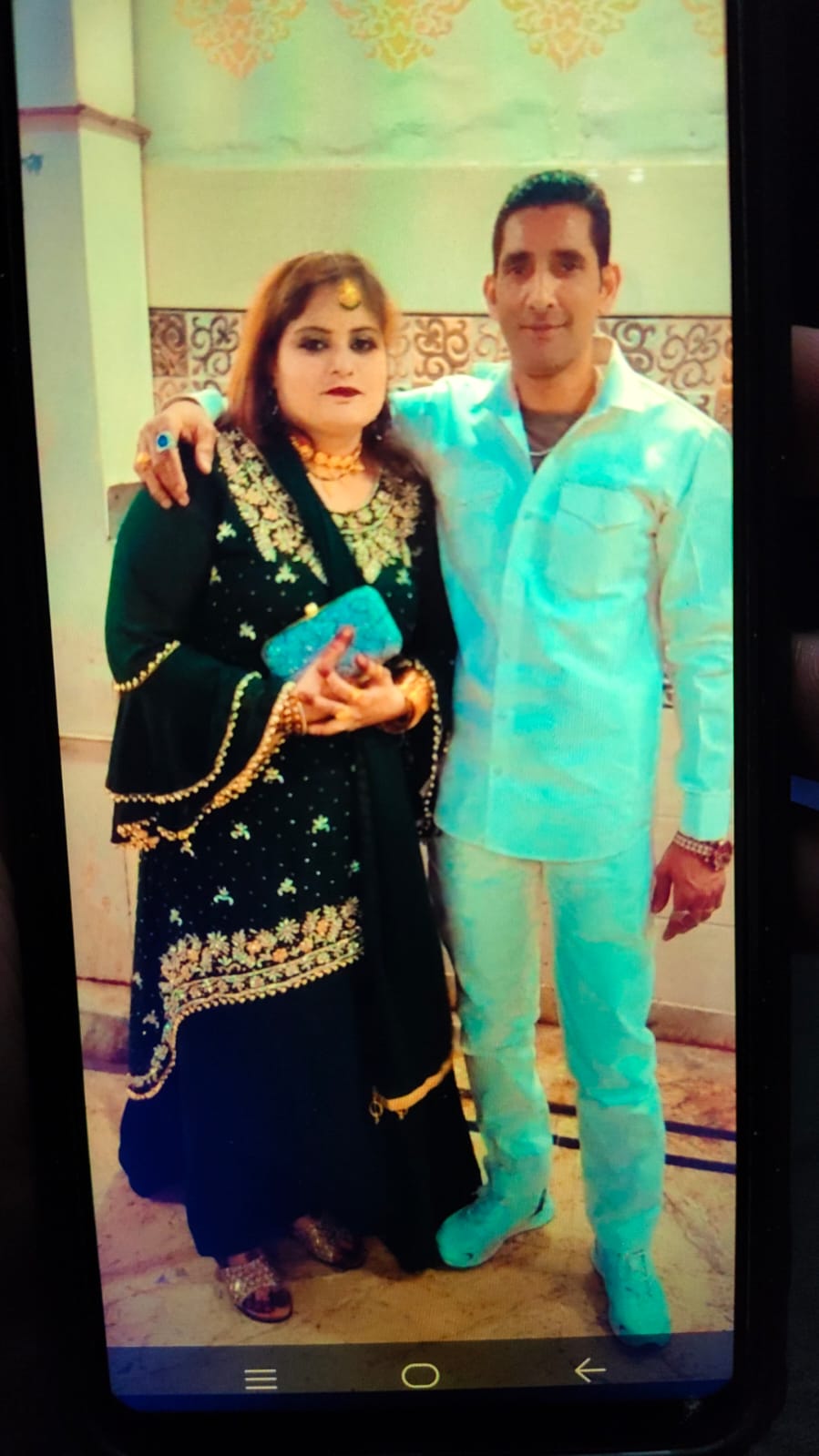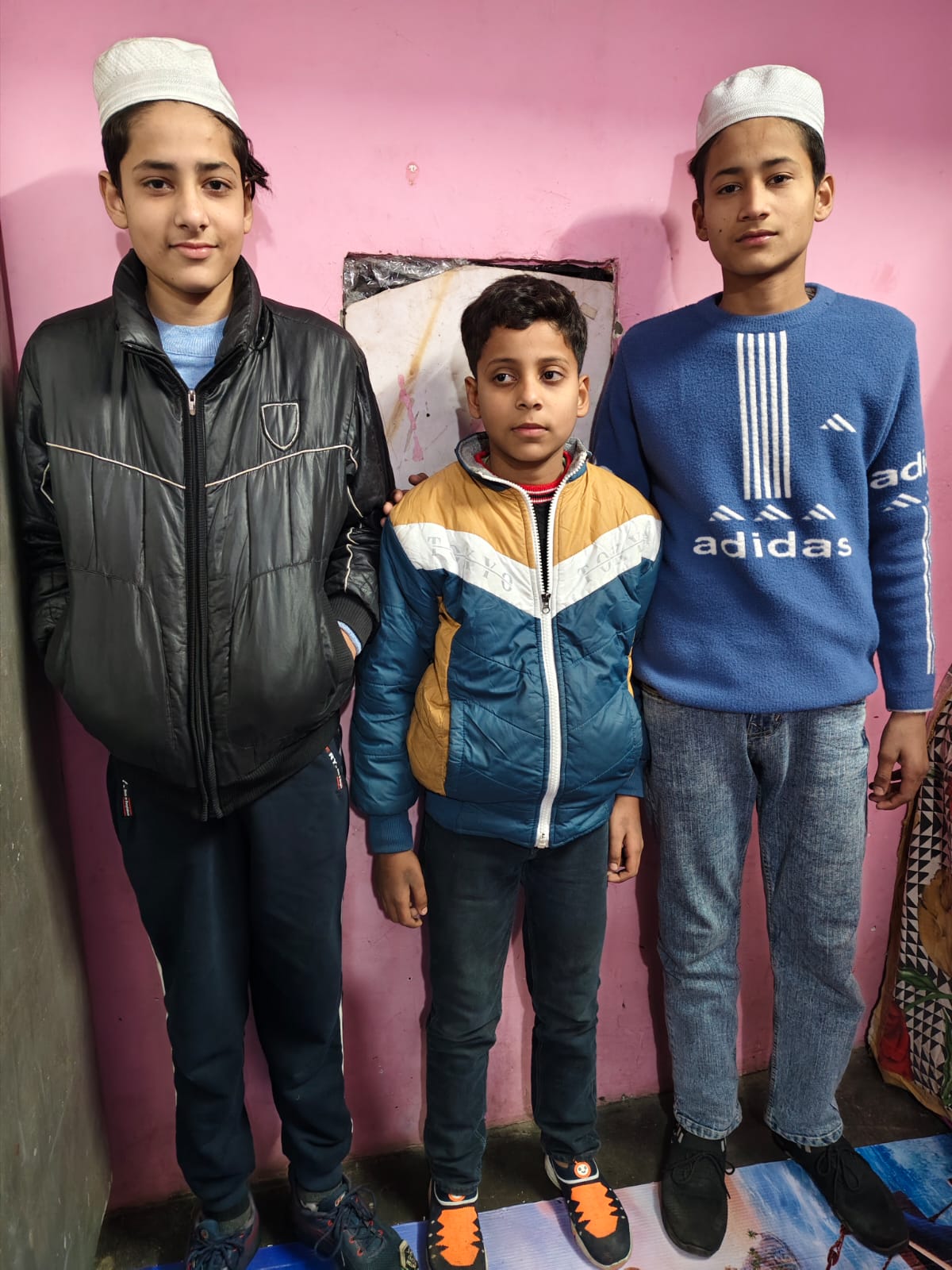Murdered for Being a Muslim? Widow of Moradabad Mob Lynching Victim Seeks Justice Amid 'Bias', 'Hatred'

Mariyam Usmani, TwoCircles.net
Rizwana Qureshi’s world came crashing down on December 30, 2024, when her husband, Shahdeen, 37, was allegedly lynched to death by a mob in Uttar Pradesh's Moradabad. With tears in her eyes, she recalls the horrific moment when she learned of her husband's brutal fate. "He was never involved in cow slaughtering; they killed him for being a Muslim," she says, her voice shaking with grief and disbelief. Shahdeen, a daily wage labourer by profession and a bodybuilder by passion, never imagined that a simple "call for work" would lead him into the jaws of death.The tragic events unfolded late that night when someone known to Shahdeen called and asked him to come to the local Sabzi Mandi (vegetable market). Without any clear details, Shahdeen, accompanied by one Adnan, made his way to the market. What awaited him there, however, was not a job, but an alleged vicious assault. Accusing him of cow slaughter, a mob allegedly assaulted him black and blue. His ribs were allegedly crushed and face smashed with iron rods. Adnan managed to escape, but Shahdeen was left behind, unable to defend himself in the darkness between 12 pm and 3 am. Despite the family's desperate attempts to reach him, Shahdeen could not be contacted for several hours.
Instead of rushing him to a hospital directly, the badly injured man was allegedly first taken to the local police station and then to the district hospital - where doctors referred him to a multi-speciality hospital. He clung to life for a day before succumbing to his injuries the same day.

Rizwana’s anguish is palpable as she recounts the unbearable pain of losing her husband. “Everyone knows how they beat him up. Who gave them the authority to murder? I believe he was trapped,” she alleges. Already struggling with health issues, including cardiovascular problems, Rizwana now faces the unbearable grief of widowhood.
The police, instead of investigating the mob that killed Shahdeen, took swift action against the deceased and Adnan and charged the duo with cow slaughter. "The matter is under investigation. We are examining CCTV footages. We have not arrested anyone yet,” says Station House Officer, Majhola, abruptly disconnecting the call when asked about the progress of the case.
Meanwhile, Shahdeen’s brother, Shahzade, who filed the FIR on behalf of the family, accused the police of harassment and verbal abuse. “They betrayed my brother, and now we are forced to suffer more. When I was at work, some policemen came to our home and verbally assaulted us,” he alleges.
Shahzade’s pain is not just about the death of his brother, but the alleged humiliation and derogatory comments made by the police. “There are no limits of hatred against Muslims. Sometimes, it feels like we are nothing. Is there any end to such tragedies?” he asks, his words filled with sorrow and frustration. He also accuses a few people of intentionally recording the violent attack to circulate it on social media, in an attempt to provoke further communal tensions.
The family’s grief deepens as they try to make sense of the motives behind Shahdeen's murder. Waris Ahmed, a relative who has been supporting the family, believes the attack was part of a "larger, pre-planned" conspiracy. "The person who called Shahdeen promised him to pay Rs 500. The people who actually slaughtered the cow have not been identified. Aslatpura, where Shahdeen lived, is a Muslim-majority area, but no Muslims are involved in the cow-slaughtering business,” he explains.
He points out that the method used to slaughter the animal — separating its head from its body — was "haram" (forbidden), a practice that no Muslim would follow. The attack, he argues, was deliberately staged to create a false narrative and frame Shahdeen.
Video clips of the assault that went viral on social media show the mob chanting aggressive slogans as they beat Shahdeen. It further cements the belief that the attack was driven by communal hatred. The chilling images of the slaughtered cow, with its head severed from the body, have become a symbol of the tragedy.
Shahdeen's death has left a void in his family, especially for his three young children: Arham (15), Afi (14) and Hafiz (10). The family, already struggling with financial hardships, now faces the added burden of raising three children without a father. Arham, the eldest son, says quietly, “I want justice for my father."

Rizwana, too, is consumed by the pain of losing her husband. "I want two things only — punishment for the culprits and support for my children. Anybody can come and stand by me during 'iddah' (the mourning period after a husband's death), but how will I raise my children once the 'iddah' period is over?" Her voice cracks as the weight of her grief overtakes her.
As the deceased's family faces ongoing "neglect and discrimination", their fight for justice feels like an uphill battle.
